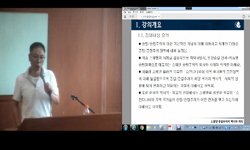한・미동맹의 역사를 연루와 방기라는 두 가지 현상을 중심으로 검토하였다. 한・미동맹은 약소국과 강대국 간에 체결된 비대칭동맹이다. 비대칭동맹에서 약소국은 안보를 얻는 반면 강대...
http://chineseinput.net/에서 pinyin(병음)방식으로 중국어를 변환할 수 있습니다.
변환된 중국어를 복사하여 사용하시면 됩니다.
- 中文 을 입력하시려면 zhongwen을 입력하시고 space를누르시면됩니다.
- 北京 을 입력하시려면 beijing을 입력하시고 space를 누르시면 됩니다.
https://www.riss.kr/link?id=A102163109
- 저자
- 발행기관
- 학술지명
- 권호사항
-
발행연도
2016
-
작성언어
Korean
-
주제어
동맹 ; 연루 ; 방기 ; 자율성 ; 전략적 이익 ; 작전통제 ; 패권 ; alliance ; abandonment ; entrapment ; autonomy ; strategic interests ; operational control ; hegemony
-
등재정보
KCI등재
-
자료형태
학술저널
- 발행기관 URL
-
수록면
91-125(35쪽)
-
KCI 피인용횟수
2
- 제공처
- 소장기관
-
0
상세조회 -
0
다운로드
부가정보
국문 초록 (Abstract)
한・미동맹의 역사를 연루와 방기라는 두 가지 현상을 중심으로 검토하였다. 한・미동맹은 약소국과 강대국 간에 체결된 비대칭동맹이다. 비대칭동맹에서 약소국은 안보를 얻는 반면 강대국은 자율성을 증진시킨다. 일반적으로 약소국은 방기를 우려하는 반면 강대국은 약소국의 전쟁에 연루되는 현상을 우려한다. 패권국가인 미국은 또 다른 패권국의 출현 방지를 가장 중요한 이익으로 생각한다. 한반도는 미국의 패권에 위협적인 구소련과 중국의 부상견제란 측면에서 전략적인 의미가 있는 지역이다. 이 같은 이유로 미국은 패권 유지 차원에서 미군의 한반도 주둔을 대단히 중요시 여기고 있다. 미국이 한・미 동맹을 체결했던 것은 이 같은 이유 때문이었다. 한・미상호방위조약을 체결할 당시 미국은 대한민국의 안보를 보장해주는 조건으로 한국군에 대한 작전통제권 행사를 포함한 자율성 제한을 요구했다. 이는 이승만 대통령의 북진통일 노력 등 대한민국의 전쟁에 연루되지 않기 위함이었다. 풍전등화의 상황에서 이승만 대통령은 이 같은 미국의 요구를 수용했다. 그러나 자국의 안보 능력이 증진되면 약소국은 자율성 증대를 놓고 강대국과 협상하게 된다. 미국은 한・미상호방위조약이 체결된 이래 방기 위협이 없는 한 대한민국의 전쟁에 연루되는 현상을 우려하여 한국군을 작전 통제하고자 노력했으며, 통제할 수 있었다. 민주화로 대한민국의 전쟁에 연루될 가능성이 줄어든 상황에서조차 미국은 작전통제권을 지속적으로 행사하고자 노력했다. 이는 작전통제권 전환으로 한국군의 능력이 증진되는 경우 방기될 가능성이 있었기 때문이었다. 결과적으로 미국은 한・미동맹이 유지되는 한 한국군에 대한 작전통제권을 행사하고자 지속적으로 노력해야만 하는 입장이었다. 작전통제권 행사로 방기 위협이 제기되는 경우 작전통제권 전환을 추구하지만 상황 변화로 방기 가능성이 줄어들면 전환을 유보하고자 노력했다. 한국은 향후 대미군사정책 수립 시 이런 현상에 대해 충분히 고려해야 할 것이다.
다국어 초록 (Multilingual Abstract)
In this paper, history of ROK-US alliance is reviewed in terms of entrapment and abandonment. ROK-US Alliance is an asymmetric alliance forged between a great power and a small country. Generally through an asymmetric alliance, a small country enhance...
In this paper, history of ROK-US alliance is reviewed in terms of entrapment and abandonment. ROK-US Alliance is an asymmetric alliance forged between a great power and a small country. Generally through an asymmetric alliance, a small country enhances its security while great power its autonomy. Small country is afraid of abandonment while great power is afraid of entrapment in a war brought about by the small country. But if small country has strategic meanings to the great power, great power could also feel abandonment.
A hegemone like U.S. is considering the prevention of the emergence of another hegemone as its primary interests. Korean peninsular is the place having strategic significance to US for detering the emergence of another hegemone such as Soviet Union and China. That is the reason why U.S. agreed on signing ROK-US Alliance characterized by Mutual Defense Treaty and Agreed Minute Relating to Continued Cooperation in Economic and Military Matters in 1954. US tried to restrict the autonomy of South Korea under the condition that it would sign on the ROK-US Mutual Defense Treaty.
As small nation’s national power becomes greater, it would like to renegotiate the terms for its lost autonomy. When threat of abandonment does not exist, US tried to keep operational control over South Korean military and could keep it. Even if the probability of US forces being entrapped in another Korean war diminished as the South Korean government is democratized, US tried to keep operational control over South Korean military. That is because US is afraid of being abandoned as ROK military capability become increased after the OPCON transfer. As the threat of abandonment becomes real, US would try OPCON transfer, but would try to keep OPCON when the threat becomes smaller if it does not transfer. ROK needs to consider this fact as it set up its military policy toward US.
목차 (Table of Contents)
- 요약
- Ⅰ. 서론
- Ⅱ. 비대칭동맹, 한반도의 특수성, 안보와 자율성의 관계
- Ⅲ. 북진통일 노력, 한・미동맹 체결, 자율성 상실
- Ⅳ. 안보와 자율성을 놓고 벌어진 한・미 간의 협상
- 요약
- Ⅰ. 서론
- Ⅱ. 비대칭동맹, 한반도의 특수성, 안보와 자율성의 관계
- Ⅲ. 북진통일 노력, 한・미동맹 체결, 자율성 상실
- Ⅳ. 안보와 자율성을 놓고 벌어진 한・미 간의 협상
- Ⅴ. 결론
- Abstract
- 참고문헌
참고문헌 (Reference)
1 국방부, "한・미동맹 60년사" 국방부 군사편찬연구소 2013
2 한석표, "한・미군사지휘체계의 변동, 1971-1978: 유엔군사령부 유지와 한・미연합사령부 청설" 서울대학교 2013
3 "한국측 작전권 일부 이양 등주장"
4 "한국군-주한・미군 관계 변화예고"
5 "한국군-주한・미군 관계 변화 예고"
6 권영근, "한국군 국방개혁의 변화와 지속 : 818계획, 국방개혁 2020, 국방개혁 307을 중심으로" 연경문화사 2013
7 국정홍보처, "참여정부. 국정운영백서(통일외교안보분야.), 협력적 자주국방" 2008
8 "주월군 철수를 작전지휘관도 찾아야"
9 "작전권이양 등 제시"
10 차지철, "우리가 세워야 할 좌표" 법문사 1966
1 국방부, "한・미동맹 60년사" 국방부 군사편찬연구소 2013
2 한석표, "한・미군사지휘체계의 변동, 1971-1978: 유엔군사령부 유지와 한・미연합사령부 청설" 서울대학교 2013
3 "한국측 작전권 일부 이양 등주장"
4 "한국군-주한・미군 관계 변화예고"
5 "한국군-주한・미군 관계 변화 예고"
6 권영근, "한국군 국방개혁의 변화와 지속 : 818계획, 국방개혁 2020, 국방개혁 307을 중심으로" 연경문화사 2013
7 국정홍보처, "참여정부. 국정운영백서(통일외교안보분야.), 협력적 자주국방" 2008
8 "주월군 철수를 작전지휘관도 찾아야"
9 "작전권이양 등 제시"
10 차지철, "우리가 세워야 할 좌표" 법문사 1966
11 차지철, "브라운 각서 이행"
12 유현민, "벨사령관 전작권 전환으로 한・미동맹 강화"
13 "민정, 민주 선거공약 제시"
14 "미지 보도 한・미연합사 작전권 한국군 이양 불가피"
15 권영근, "미국의 한국군 작전통제권 행사에 대한 인식변화 : 미국의 세계전략 변화를중심으로" (2) : 2014
16 조갑제, "노태우 육성회고록 전환기의 대전략" 조갑제닷컴 2007
17 김종대, "노무현시대의 문턱을 넘다" 나무와숲 2010
18 "‘일부 반미감정원인과 대책 밝혀라’ 본회의 대정부 질문 답변"
19 임경훈, "[정세현의 정세토크] 남북관계, 이대로 가면 15년 전으로 후퇴 : 朴 대통령, 전작권 환수는 아버지의 비원이었다"
20 Department of the Army, "Viet Nam Studies, Command and Control(1950-1969)" 1974
21 Taylor, Jr, "US-Korean Security Relations: Post-Reunification" 1991
22 Pritchard, Charles L, "U.S. Policy Toward the Korean Peninsula"
23 Harrison, Selig S, "The Widening Gulf : Asian Nationalism and American Policy" The Free Press 1978
24 Odom, William O, "The US Military in Unified Korea" XII (XII): 2000
25 Oberdorfer, Don, "The Two Korea" Basic Books 2013
26 Mearsheimer, John J, "The Tragedy of Great Power Politics" W. W. Norton &Company 2014
27 Shorrock, Tim, "The Struggle for Democracy in South Korea in the 1980s and the Rise of Anti-Americanism" 8 (8): 1986
28 Snyder, Glenn H, "The Security Dilemma in Alliance Politics" 36 (36): 1984
29 Walt, Stephen, "The Origins of Alliance" Cornell University Press 1990
30 "The Military Balance, 1970-1971"
31 Haselden, JR, "The Effects of Korean Unification on the US Military Presence in Northeast Asia" Parameters 2002
32 Huntington, Samuel P, "The Clash of Civilizations and the Remaking of World Order" Simon &Schuster 2001
33 "Scenesetter for The Visit of Secretary of Defense GATES to the ROK for the 39th Security Consultative Meeting"
34 Gross, Donald G, "Reviewing the Status of U.S. Forces in Korea" U.S.-Korea Relations 5 (5): 2003
35 Moon Chung-In Moon, "Rethinking Alliance and the Economy: American hegemony, path dependence, and the South Korean political economy" 10 : 2010
36 Holden, Thomas W, "ROK-Us Military Relations : Transitions of Defense Responsibility" U.S. Army War College 1989
37 "Politics of Opcon Transition in Korea"
38 "National Security Decision Memorandum 251, Termination of the U. N. Command in Korea"
39 "Memorandum of Conversation, Foreign Relations of the United States, 1969– 1976, Volume E–12, Documents on East and Southeast Asia, 1973– 1976 Document 258"
40 "Memorandum of Conversation, Foreign Relations of the United States, 1969– 1976 Volume E–12, Documents on East and Southeast Asia, 1973– 1976, Document 271"
41 "Memorandum of Conversation, FRUS 1969–1976, Volume XVII, Documents on China 1969-1972, Document 197"
42 "Memorandum of Conversation, FRUS 1969–1976, Volume E–12, Documents on East and Southeast Asia, 1973–1976, Document 209"
43 "Memorandum of Conversation, FRUS 1969–1976, Volume E–12, Documents on East and Southeast Asia, 1973–1976, Document 209"
44 "Memorandum of Conversation, FRUS 1969–1976 Volume E–12, Documents on East and Southeast Asia, 1973–1976, Document 265"
45 "Memorandum From Cyrus R. Vance to President Johnson, Foreign Relations of the United States 1964–1968 Volume XXIX, Part 1, Korea, Document 181"
46 Kim, Stephen Jin-Woo, "Master of Manipulation : Syungman Rhee and the Seoul-Washington Alliance 1953-1960" Yonsei University Press 2001
47 Hahm Pyong-Choon, "Korea’s Mendicant Mentality?"
48 Olsen, Edward A, "Korean Politics and U.S. Policy: Higher Pressure and Lower Profile" 27 (27): 1987
49 Harrison, Selig S, "Korean Endgame: A Strategy for Reunification and U.S. Disengagement" Princeton University Press 2009
50 Dujarric, Robert, "Korea after Unification: An Opportunity to Strengthen the Korean-American Partnership" XII (XII): 2000
51 O'Hanlon, Michael, "Keep US Forces in Korea after Reunification" 10 (10): 1998
52 So, Chin Tae, "Ideas and Concepts: The South Korean Air Force and U.S. Korean Policy, 1946∼1956" ROK Air Force Academy Press 2004
53 Roehrig, Terence, "From Deterrence to Engagement" Lexington Books 2006
54 "FRUS 1958-1960 Vol. XVIII 1984"
55 Harrison, Selig S, "Dateline South Korea: A Divided Seoul" (67) : 1987
56 "Dasd Sedney Meetings With ROKG, President-Elect's Transition Team on Alliance, OPCON, Afghanistan"
57 John H, Cushman, "Command Arrangement in Korea: Issues and Options" CSIS/KIDA 1988
58 Cha, Victor D, "America’s Alliance in Asia : The Coming Identity Crisis with the Republic of Korea?" RECALIBRATING THE U.S.-REPUBLIC OF KOREA ALLIANCE, U.S. Department of Defense 2003
59 Larson, Eric V, "Ambivalent Allies?" RAND 2004
60 "Ambassador's Initial Call on ROK Defense Minister Kim Jang-Soo"
61 "Ambassador VERSHBOW Discusses OPCON With GNP Lawmakers"
62 James D. Morrow, "Alliances and Asymmetry: An Alternative to the Capability Aggregation Model of Alliances" 35 (35): 1991
63 Perry, Charles M, "Alliance Diversification and the Future of the U.S.-Korean Security Relationship, Institute for Foreign Policy Analysis" Potomac Books Inc 2004
64 US Department of State, "6. Telegram from the Department of State to the Embassy in Korea"
65 US Department of State, "222. Telegram from the Department of State to the Embassy in Korea"
66 US Department of State, "219. Telegram from the Department of State to the Embassy in Korea"
동일학술지(권/호) 다른 논문
-
5차 핵실험 이후의 북한 핵문제와 우리의 대응 전략 방향
- 한국전략문제연구소
- 전재성(Chun, Chae-sung)
- 2016
- KCI등재
-
북한의 핵선제불사용(No First Use) 선언의 배경과 의미
- 한국전략문제연구소
- 김보미(Kim, Bo-mi)
- 2016
- KCI등재
-
- 한국전략문제연구소
- 김성한(Kim, Sung-han)
- 2016
- KCI등재
-
- 한국전략문제연구소
- 옥도경(Ok, Do-kyeong)
- 2016
- KCI등재
분석정보
인용정보 인용지수 설명보기
학술지 이력
| 연월일 | 이력구분 | 이력상세 | 등재구분 |
|---|---|---|---|
| 2023 | 평가예정 | 재인증평가 신청대상 (재인증) | |
| 2020-01-01 | 평가 | 등재학술지 선정 (재인증) |  |
| 2019-12-01 | 평가 | 등재후보로 하락 (계속평가) |  |
| 2016-01-01 | 평가 | 등재학술지 유지 (계속평가) |  |
| 2012-01-01 | 평가 | 등재 1차 FAIL (등재유지) |  |
| 2009-01-01 | 평가 | 등재학술지 선정 (등재후보2차) |  |
| 2008-01-01 | 평가 | 등재후보 1차 PASS (등재후보1차) |  |
| 2007-01-01 | 평가 | 등재후보학술지 유지 (등재후보1차) |  |
| 2006-01-01 | 평가 | 등재후보 1차 FAIL (등재후보1차) |  |
| 2005-08-01 | 학술지등록 | 한글명 : 전략연구외국어명 : STRATEGIC STUDIES |  |
| 2004-01-01 | 평가 | 등재후보학술지 선정 (신규평가) |  |
학술지 인용정보
| 기준연도 | WOS-KCI 통합IF(2년) | KCIF(2년) | KCIF(3년) |
|---|---|---|---|
| 2016 | 0.7 | 0.7 | 0.66 |
| KCIF(4년) | KCIF(5년) | 중심성지수(3년) | 즉시성지수 |
| 0.71 | 0.69 | 0.847 | 0.6 |





 DBpia
DBpia







